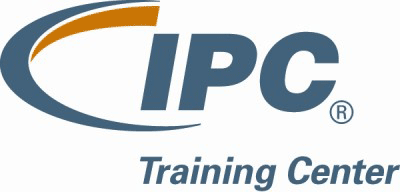Chris Turner
Principal DFT Consultant - Redback Test Services
Since the first vacuum tube dimly sprang into life over a century ago, there has been a relentless search for an illusory “Holy Grail”; ‘The Quest for the Perfect Assembly Process’ — a process that makes only good electronic assemblies. Why? To eliminate the significant aggravation and expense of inspection, test, scrap, training and quality assurance steps that management label ‘non-value add’ activities.
Despite a century of effort, this goal remains entirely elusive. My presentations explore the challenge in finding a combination of design, parts, process, and quality assurance activities to help us further towards our industries Holy Grail.
You can find out more about Chris here: LinkedIn
Presentation 1
Creating an optimal PCBA design and manufacturing process
- “Know your enemy and yourself” [Sun Tzu - The Art of War] Lets work through the many and often conflicting attributes of projects across the OEM and EMS, including:
Who are the decision makers? “Are they on your page”- Final product use, the Quality/Risk limits
- Regulatory Obligations
- Cost Ceiling
- Volume
- Timelines (“just get it out fast” isn’t for everyone!)
- Technology
- Product Life
- Design and Manufacturing skills (OEM and EMS!)
- Availability of suitable tools
- How to find experts in areas outside your domain (tricky!)
- Boltng it all together in some examples to see what we get!
- Dismantling the “wall” between Design and Manufacture. “However clever a design might be, if it cannot be assembled into a functioning unit and sold at a profit, it has no value to the company and could even be damaging”.
- Assuming a perfect design, what are the process errors we can expect and a?empt to mitigate in design and or test?
- The apocryphal order of magnitude rule, Test early or pay big! “Shift-Left” (upstream) and save!
- Evaluation of aptitude, having the tools is not enough!
- The OEM design must dovetail with the EMS process and people, if you want maximum success.
- The design process, who to involve?
- How to visualise a projects likely success while still in the design stage.
- Test methods, Specifications and Test Coverage Reporting.
- Initial and ongoing Test Limits, stats are probably unavoidable and easy to misunderstand.
Presentation 2
Examples of Design For Test (DfT)
- Making AOI & 2DX friendly layouts
- ICT & FCT tricks of the trade
- What is a good test anyway?
- Concurrent testing e.g. Flashing while testing elsewhere.
- Fast, Accurate Diagnostics; that your mum could understand
- Onboard SN & Test Logs (very helpful)
- Safe power-up (really safe!)
- Protection circuit checks (over temp/voltage/current/watchdogs etc)
- End Of Line (EoL) Test, what should we do here?
- We’ll run through some typical circuits and their DfT opportunities.
Attendees for Presentation #2 should ideally have attended #1.


